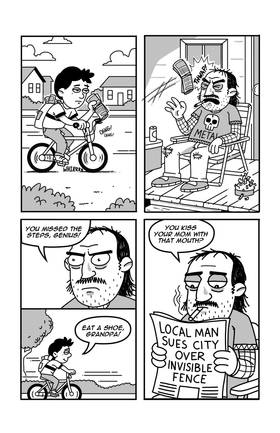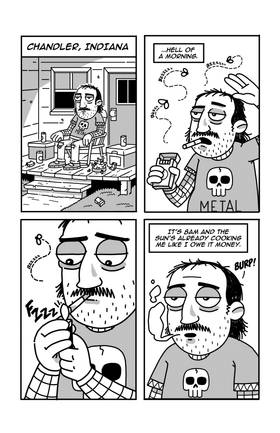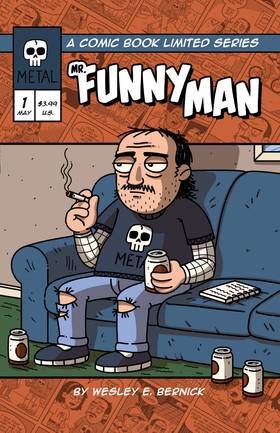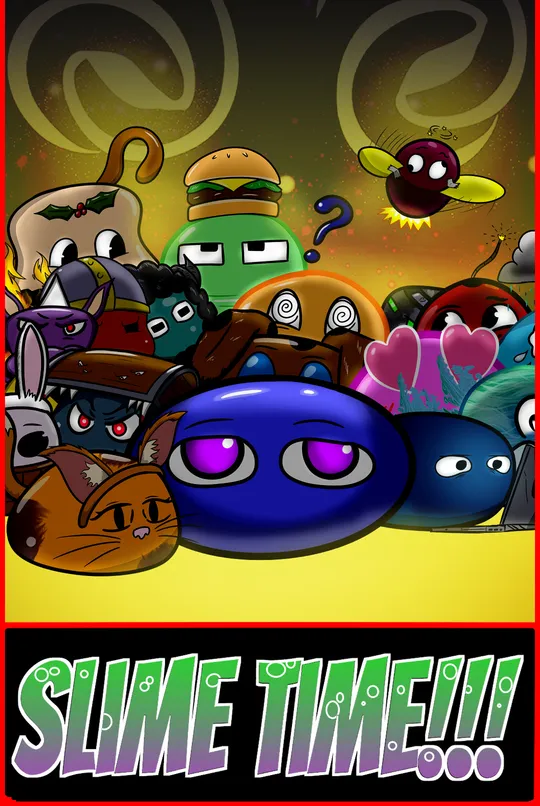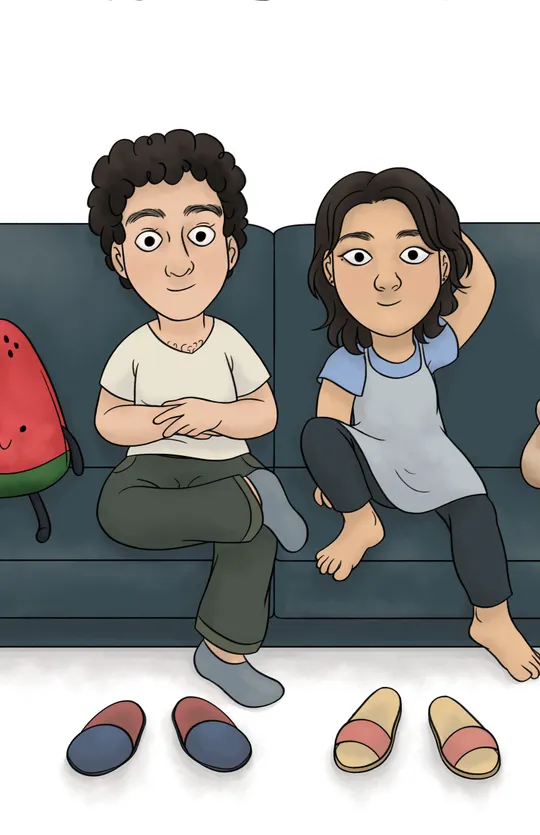Issue 1
Mr. Funny Man
The story begins with Wyatt Chumbly, a washed-up, 48-year-old stand-up comic returning to his small hometown after years of drifting through comedy clubs and failed gigs. Broke, bitter, and emotionally numb, Wyatt’s only option is to move into a hand-me-down home and take a job at a local convenience store.
Haunted by regret and estranged from his ailing mother—now in a retirement home with fading memory—Wyatt spends his days smoking, dodging real responsibilities, and trying to convince himself he’s still “working on material.” But his comedic instincts are rusted over, and his personal life is a junkyard of missed calls and bad apologies.
A chance reconnection with Jazz, a younger, up-and-coming comic with actual momentum, jolts something loose in him. She gets him a spot at The Funky Pickle, a low-rent comedy club with sticky floors and lower standards. Wyatt bombs—but there’s a flicker. A joke lands. A spark returns.
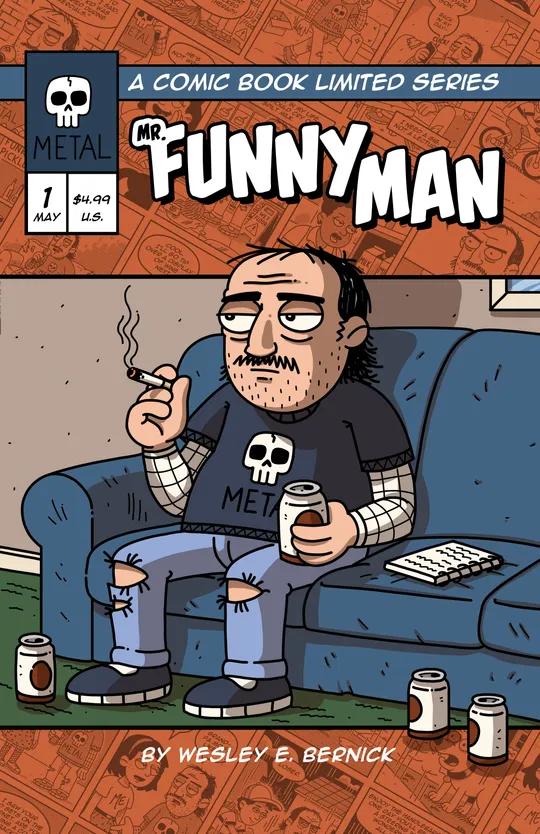

 English
English
